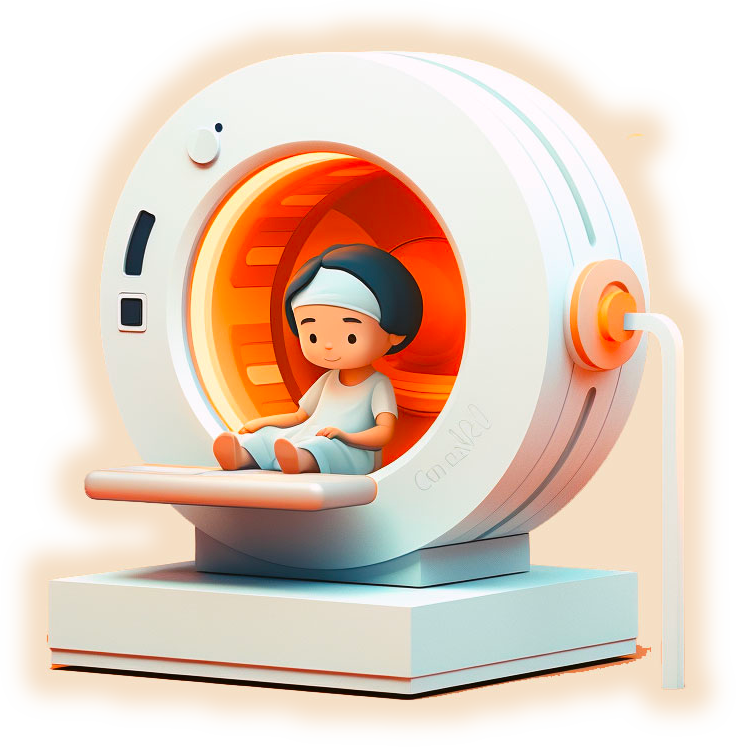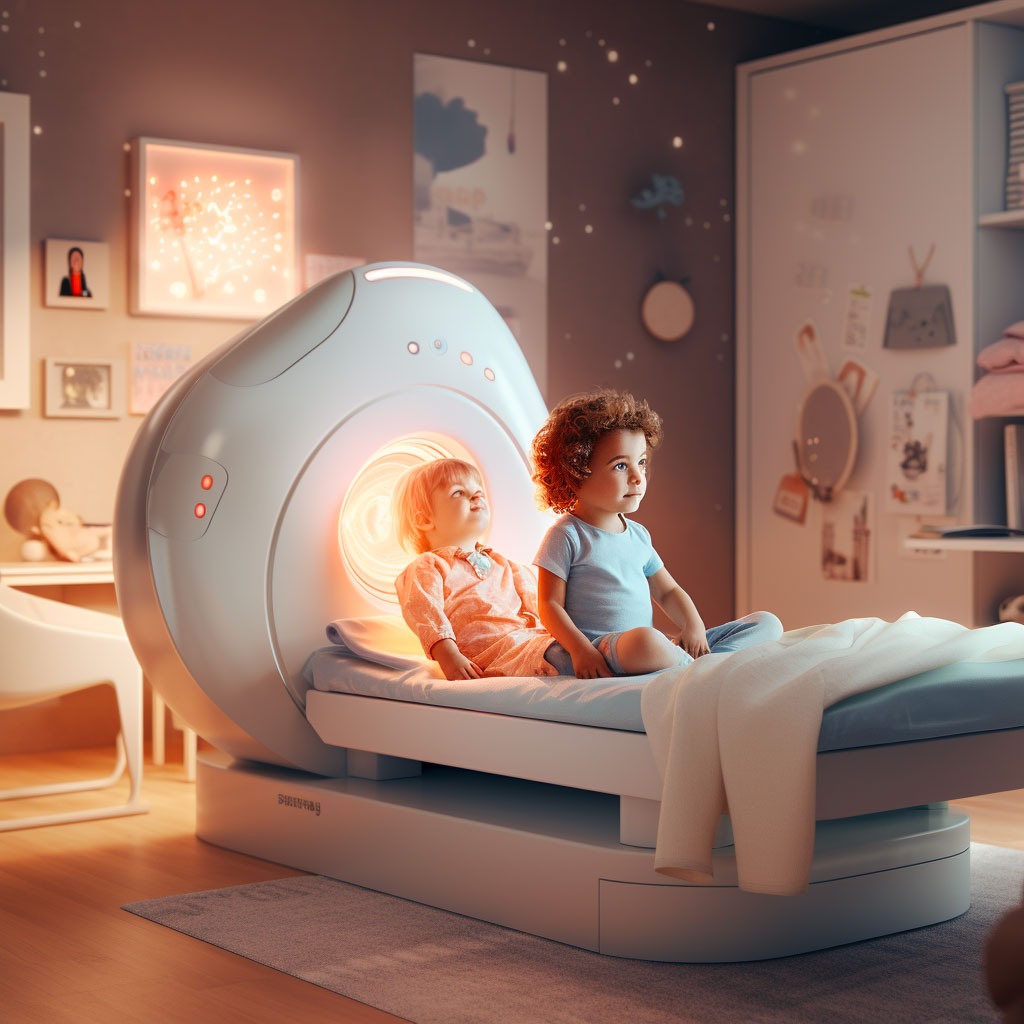 |
Pediatric Radiology - soon, resources and expertise, locally and remote. informations en français Having certified pediatric radiologists' expertise is of paramount importance in the field of medical imaging because children are not merely small adults. Pediatric radiologists possess specialized knowledge and training to address the unique challenges presented by pediatric patients, including their dynamic anatomical changes, increased sensitivity to radiation, and psychological needs. Their expertise ensures accurate diagnoses, tailored imaging protocols that minimize radiation exposure, and a child-centric approach that alleviates anxiety and fosters cooperation. Ultimately, certified pediatric radiologists play a crucial role in safeguarding the health and well-being of pediatric patients, providing parents and healthcare teams with confidence in the accuracy and appropriateness of diagnostic imaging for children.  Referring to an experienced certified pediatric radiologist ensures that the unique needs and challenges of pediatric imaging are addressed, ultimately leading to more accurate diagnoses and better patient care. Pediatric radiology stands as a distinct subspecialty within the field of medical imaging due to the unique anatomical and physiological differences between children and adults. The first key differentiator lies in the developing bodies of pediatric patients. Children undergo rapid growth and maturation, resulting in ever-changing anatomical structures. Radiologists specializing in pediatrics must possess a deep understanding of these dynamic variations to accurately interpret images. Moreover, pediatric patients are more sensitive to radiation, necessitating specialized imaging protocols that minimize radiation exposure while maintaining diagnostic quality. Another critical aspect distinguishing pediatric radiology is the importance of communication and a child-centric approach. Children often struggle with fear and anxiety during medical procedures, including radiological examinations. Pediatric radiologists and technologists need specialized training to create a reassuring and child-friendly environment. This involves effective communication with both young patients and their parents, as well as using techniques like play therapy to ease anxiety and encourage cooperation. These efforts are essential to obtain high-quality images and ensure the well-being of the pediatric population.  The range of conditions and diseases seen in pediatric radiology differs from adult radiology. Many pediatric diseases are congenital or unique to childhood, such as pediatric tumors, developmental anomalies, or conditions associated with prematurity. Therefore, pediatric radiologists need to be well-versed in the specific pathologies and presentations that affect children. This specialized knowledge allows for timely and accurate diagnoses, ultimately contributing to better outcomes for young patients. In summary, the dynamic nature of pediatric anatomy, the need for child-centric care, and the distinctive range of pediatric conditions make pediatric radiology a unique and vital branch of medical imaging.  Artificial intelligence (AI) in pediatric radiology while in its infancy, holds promise for the future of diagnostic imaging in the youngest patients. As advanced as these algorithms might become, the nuance, complexity, and unique considerations of pediatric imaging mean that the oversight of expert pediatric radiologists will always be indispensable. While AI can assist in enhancing diagnostic speed and precision, the depth of understanding, clinical correlation, and human touch that seasoned pediatric radiologists bring to the table can never be entirely replicated by machines. It's a partnership wherein technology augments, but does not replace, the irreplaceable expertise of the human professional. We have that expertise. From Switzerland and beyond. The main core of the team is based in Switzerland with activities opened to the international.  |
© PedRad.net / PedRad.ch 2006-23